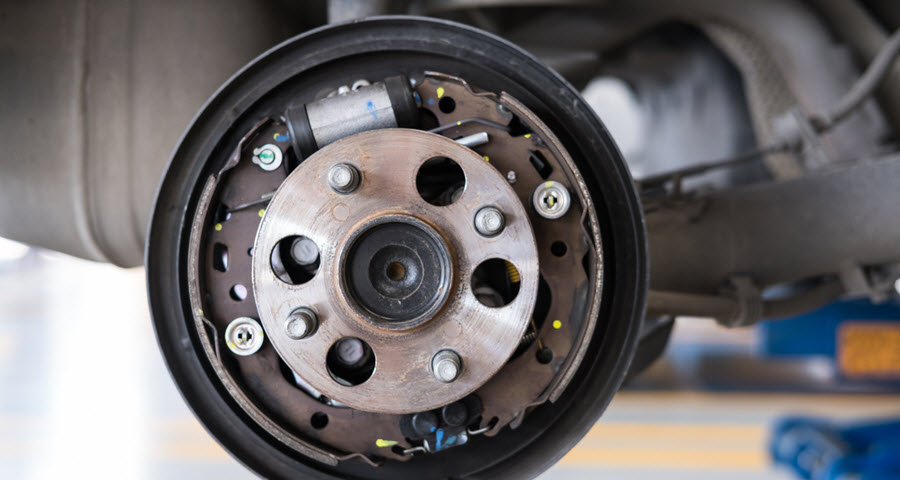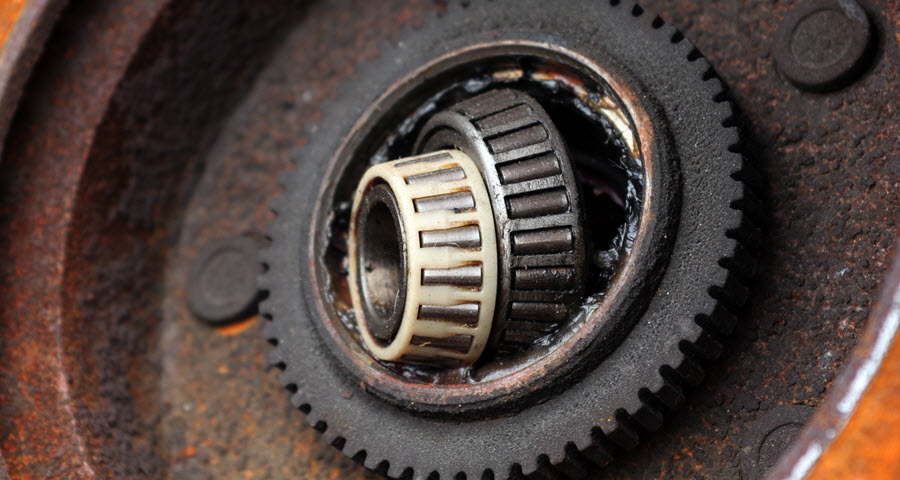German engineering is known for its precision, and that attention to detail is evident in Audi vehicles. Audis are popular imports that Americans have come to trust for their quality and reliability. While they may cost a bit more than some other brands, the peace of mind that comes with owning an Audi is worth the investment. When you purchase an Audi, you know you’re getting a vehicle that was built to last. With regular maintenance, your Audi will provide you with years of trouble-free driving.
Despite the reliability Audi is known for, like any other vehicle it can occasionally experience an issue with some of its parts. One of the parts it is important to be aware of is the wheel bearing. If your vehicle has a bad wheel bearing, it is important to have it addressed as soon as possible.
What is a wheel bearing?
A wheel bearing is a type of rolling-element bearing that allows the wheel to rotate with minimal friction. The bearing consists of four parts: an inner ring, an outer ring, two rows of rolling elements (usually balls or rollers), and a cage (or retainer) to keep the balls spaced evenly. As the wheel turns, the inner and outer rings rotate along with it. The rolling elements ride on the races (the surfaces of the inner and outer rings), and they help to keep the wheel moving smoothly by reducing friction. In addition, the cage helps to keep the rolling elements spaced evenly around the circumference of the bearing so that they can roll smoothly.
Wheel bearings are essential for keeping a vehicle’s wheels turning freely, and they are typically located in the hub assembly (the housing that holds the bearing). If a wheel bearing fails, it can cause friction that can damage the wheel or cause it to become detached from the vehicle entirely. For this reason, it is important to maintain wheel bearings and replace them when necessary.
Signs Your Wheel Bearings are Going Bad
When wheel bearings fail, the wheels can become loose and cause the car to shake or vibrate. In extreme cases, the wheel can come completely off, which can be very dangerous. There are several signs that you may have a problem with your wheel bearings. If you hear a grinding noise coming from one of the wheels, it may be an indication that the bearings are starting to wear out. Your car may also pull to one side or shake when you brake if the bearings are damaged.
If you suspect that your wheel bearings are failing, it is important to have them checked by a professional mechanic as soon as possible. Driving on damaged bearings can cause further damage to your car that can be more expensive and time-consuming to repair, and may even lead to an accident.
Maintaining Your Audi’s Wheel Bearings
Wheel bearings are an essential part of your vehicle, and they need to be properly maintained in order to avoid damage. The first step is to make sure that they are properly lubricated. This can be done by simply wiping down the bearings with a clean cloth or using a brush to remove any excess grime. You should also check the level of lubricant in the bearings regularly and add more if necessary. Additionally, it’s important to keep an eye on the condition of the bearings themselves. If you notice any cracks or other damage, it’s important to get them repaired or replaced as soon as possible. By taking these simple steps, you can help to ensure that your wheel bearings remain in good condition and last for many years to come.

Trust Your Audi to Bavarian Workshop
When you suspect a bad wheel bearing on your Audi, it is important to address the problem as quickly as possible, both to prevent further damage and for the safety of yourself and anyone who may be riding with you. If you live in or around Agoura, Calabasas, Woodland Hills, or West Hills, CA, our skilled service technicians at Bavarian Workshop will be happy to help get you back on the road with the smooth ride you deserve. Call or stop by today to learn more about how we can help.
 Rated 5 Stars on Google
Rated 5 Stars on Google 23710 Vanowen St, West Hills, CA 91307
23710 Vanowen St, West Hills, CA 91307 818-346-9363
818-346-9363